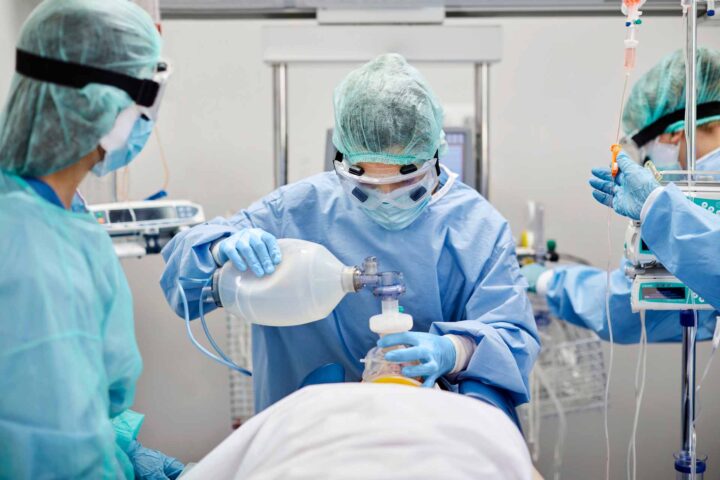Respiratory Therapy
Become a uniquely specialized healthcare professional.
Launching Fall 2027


Begin with the Pre-Respiratory Therapy Concentration
Students pursuing Respiratory Therapy out of high school apply to Butler as a Health Sciences major with a Pre-Respiratory Therapy concentration. They begin taking science courses their first year, learning about the profession and earning the prerequisites required to apply into the professional phase of the Respiratory Therapy program.

Complete Your Degree in the Professional Phase
Students who meet the prerequisites for the Respiratory Therapy major and are admitted following their interview then proceed to complete the remaining six semesters and one summer session of the program. Transfer students are invited to enter the professional phase at this stage, provided they have also completed the required prerequisites and are selected through the admission process.
Why Butler’s Respiratory Therapy Program?
While many respiratory therapy programs are offered as an associate degree, Butler’s program aligns with the broader trajectory of the profession by offering a Bachelor of Science. This rigorous training, in addition to a human-centered curriculum, prepares students to enter the workforce with confidence and versatility.
Students can either pursue respiratory therapy roles directly after graduation or apply for other graduate or professional healthcare programs.
Butler’s small student-to-faculty ratio means you’ll be educated by professors who care about you as both a student and a person. Known for excellence in healthcare education, our faculty is dedicated to students’ personal success, delivering high quality, whole-person patient care, and emphasizing team-based healthcare.
From your first semester, you’ll gain hands-on experience through dynamic classroom instruction, interactive lab sessions, and advanced simulation training. This immersive approach includes working with high-fidelity mannequins and ventilators to help you build clinical confidence. You’ll then apply your skills in real-world patient care alongside experienced respiratory therapists ranging from routine treatments to life-saving interventions.
The career of respiratory therapy offers flexibility across a wide range of healthcare environments, including intensive and cardiac care units, emergency rooms, surgical units, inpatient and/or long-term care facilities, and transplant care. Known for job stability and competitive salaries, the field offers a rewarding path in healthcare.
Through the professional Respiratory Therapy curriculum, students will become certified in Basic Life Support (BLS), Pediatric Advanced Life Support (PALS), Advanced Cardiac Life Support (ACLS), and Neonatal Resuscitation Program (NRP) Certification.


